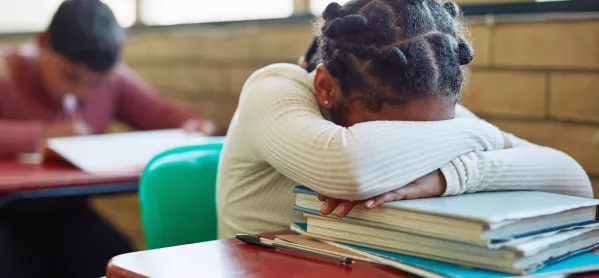A rise in key stage 2 pupils working below the threshold for sitting Sats is “further evidence” of the ”government’s failure to fund a proper recovery plan”, a headteachers’ leader has warned.
Each year, pupils who are working below the standards of the key stage 2 tests in reading or maths do not have to sit the assessment.
A blog post for FFT Education Datalab today shows that the percentage of disadvantaged pupils working below the standard of the reading test has risen to 6.1 per cent in 2022, from 4.8 per cent in 2019 - the last time Sats were taken.
A similar rise was seen in maths in which the proportion of disadvantaged pupils working below the standard of the test increased to 5.8 per cent his year, up from 4.6 per cent in 2019.
While the proportion of non-disadvantaged pupils not entered for the test also rose, the increase was much smaller (2.8 per cent to 3.2 per cent in reading, and 2.5 per cent to 2.9 per cent in maths).
James Bowen, director of policy at school leaders’ union the NAHT, said it was not “surprising” to see an increase in the percentage of pupils working below the standard of the test.
Mr Bowen said we are “almost certainly seeing” yet “another impact of the disruption caused by the pandemic”.
He added: “It serves as further evidence that the government’s failure to fund a proper recovery plan has had an impact. Schools will continue to do everything they can to help pupils make the progress they need, but they need the resources to do it.”
Yesterday, government figures revealed that the disadvantage gap at primary schools had increased to its widest level since 2012.
Attainment gap rises
Dave Thomson, chief statistician at FFT Education Datalab, questioned whether the average scaled scores in reading and maths told the “whole story”, due to the exclusion of pupils working below the standard of the test.
Mr Thomson said yesterday’s figures also showed a widening of the attainment gap of 0.3 points in reading and 1.0 in maths between 2019 and 2022.
While the figure “mirrors the findings of different teams of researchers during the pandemic”, he said the “magnitude” of the change was “surprising”.
The DfE has been contacted for comment.




